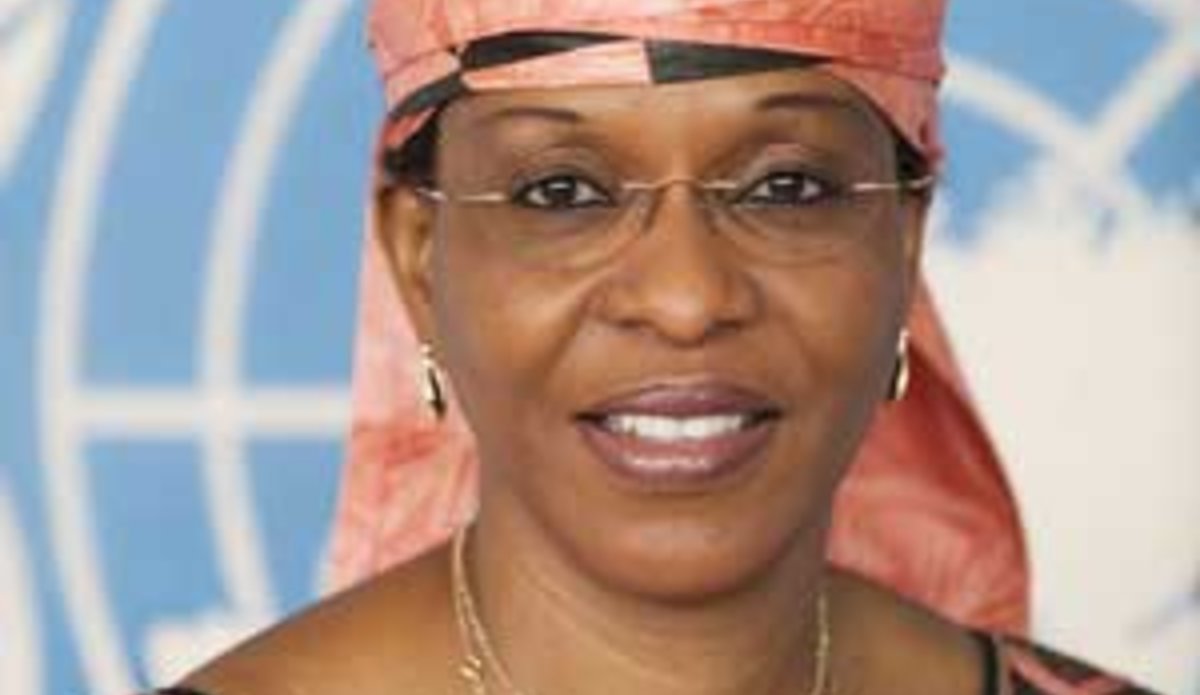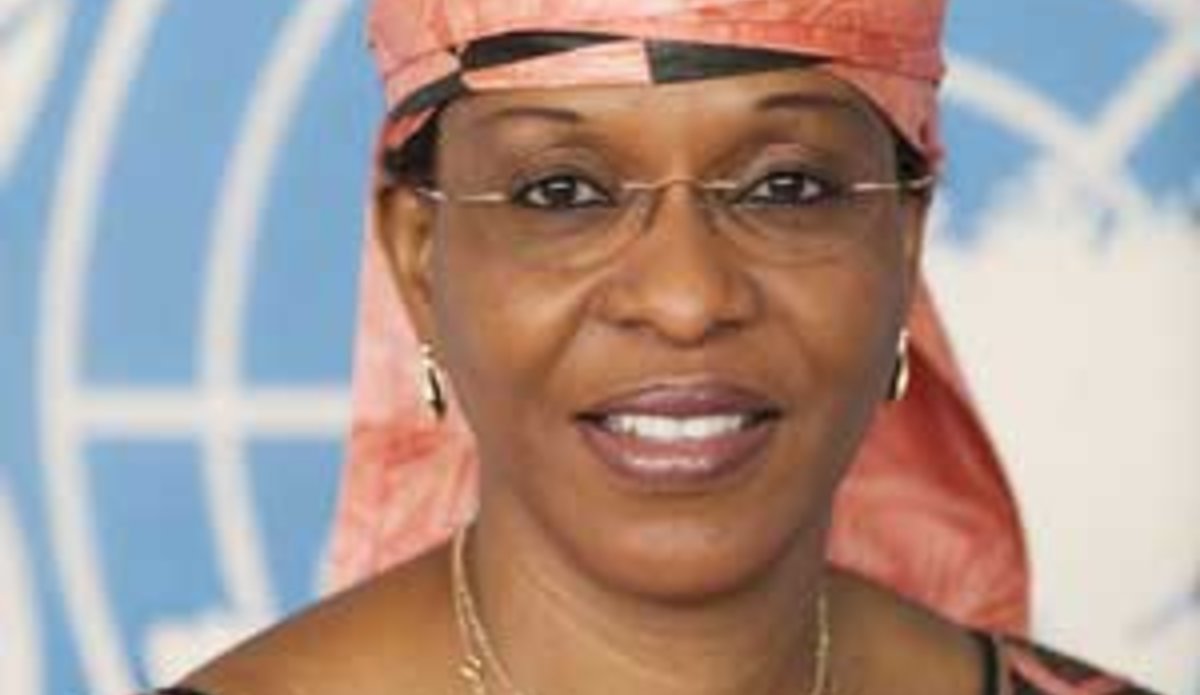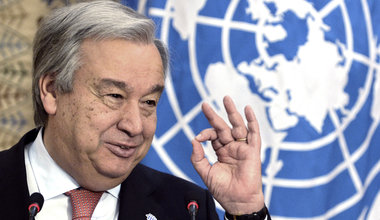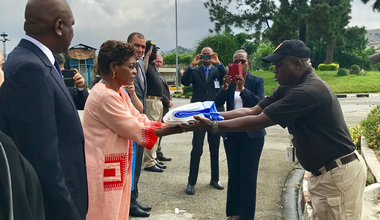Statement by Ms. Aïchatou Mindaoudou Special Representative of the UN Secretary-General for Côte d’Ivoire 9 June 2015

Mr. President, Distinguished Members of the Security Council,
- 1. Thank you for the opportunity to speak before this Council to present the report of the Secretary-General on the situation in Côte d'Ivoire, dated 7 May 2015, and to provide an update on major developments in the country, including with respect to preparations for the upcoming October presidential election.
- 2. In four months, the people of Côte d'Ivoire will go to the polls to choose their next president, in an environment very different from 2010. Much has been accomplished since the last election. Stability is being progressively maintained. The economy is growing, and Ivorians are able to pursue their affairs in a peaceful environment. While political disagreements remain, there is more and more national consensus for constructive dialogue. Nevertheless, some opposition hardliners are more and more calling for demonstrations.
- 3. Mr. President, political dialogue between the Government and the opposition parties is progressing. Following the 29 January talks, concrete measures were taken to fund, on an exceptional basis, opposition political parties that do not hold a seat in the National Assembly. Dialogue resumed on 26 May, bringing together 16 opposition political parties that were focused on constructive exchanges on crucial issues, including facilitating a peaceful political climate, creating an environment conducive to the return of exiles, measures required to ensure a credible and secure electoral process, and release of prisoners. UNOCI has been informed that meetings between the Government and the opposition will be held on a monthly basis. Such advances in political dialogue have contributed significantly to improvements in the overall security and stability of Côte d'Ivoire.
- 4. Such constructive dialogue efforts by the Government and opposition parties are most welcome, and it would be important that they continue in order to facilitate an enabling environment for a peaceful, free and fair presidential election. However, there are still some political stakeholders who have given in to the temptation of using inflammatory rhetoric and they must be continually encouraged to act responsibly, and in accordance with the law, throughout the electoral period.
- 5. Political posturing ahead of the upcoming presidential election has resulted in the reconfiguration of the political scene. For instance, the Front Populaire Ivoirien (FPI) party and the Parti Democratique de Côte d'Ivoire (PDCI) are currently experiencing dissidence among their numbers. However, diverse political views and positions are being expressed peacefully, and are to be expected as part of any democratic process.
- 6. I have endeavoured to perform my good offices mandate not only by persuading the Government and opposition parties towards dialogue, but also to encourage public confidence in the authorities' efforts to foster peace and stability throughout the country. To this end, social cohesion, reconciliation and peacebuilding initiatives in the regions, supported by UNOCI and the United Nations Country Team in Côte d'Ivoire, have been instrumental. In my recent visit to western Côte d'Ivoire from 20 to 26 May, I heard from local stakeholders their genuine commitment to peaceful elections, and the recognition that electoral violence would have negative consequences for the region.
- 7. For Côte d'Ivoire, the October presidential election represents an important milestone in the consolidation of the hard-won gains of recent years. In preparation for the election, the amended Electoral Code was adopted on 2 April. Voter registration commenced in over 2,000 centres as of 1 June, and is to end on 30 June, with the final voters list expected to be ready by 31 August. As Head of the UN system in Côte d'Ivoire, I have ensured enhanced coordination – with international partners and the Independent Electoral Commission – of the United Nations' support to the Government with regard to the electoral process.
- 8. Mr. President, efforts to advance reparations for victims of the 2010/2011 post-election crisis has commenced. Further to the final report of the Dialogue, Truth and Reconciliation Commission (DTRC), that has been published yet, the Government has begun implementing some of its key recommendations. On 24 March, the Government established the Commission Nationale pour la Réconciliation et l'Indemnisation des Victimes (CONARIV) which focuses on the registration of all unlisted victims of the successive crises in Côte d'Ivoire since 1990. The executive organ of the CONARIV, the Programme National de Cohésion Sociale (PNCS), will implement the reparations. It will be important that it ensures an inclusive process of compensation of victims.
- 9. In the fight against impunity, perceptions of one-sided justice continues to be a subject of discussion among Ivorians although investigations into serious crimes committed during the 2010/2011 post-electoral crisis is currently being carried out by the Special Investigation and Examination Cell. I urge the Government of Côte d'Ivoire to continue its investigations and bring to justice all those who are alleged to have committed human rights violations and abuses, as justice – regardless of political affiliation – would greatly contribute to healing past wounds and fostering reconciliation.
- 10. Mr. President, on 2 March, the first national mechanism aimed at enhancing gender balance in all State institutions, the Conseil National de la Femme, was launched. In this presidential election year, this development is timely, as the Council could play a key role in encouraging greater participation of women at all levels of decision-making, including in politics. I also commend the work of the National Committee of Experts on Conflict-Related Sexual Violence, which, with UNOCI's support, has continued its sensitisation activities with the Forces Républicaines de Côte d'Ivoire (FRCI) on human rights and international humanitarian law. However, I remain concerned by continued reports of sexual- and gender-based violence, as well as harmful traditional practices such as female genital mutilation. I am hopeful that these issues will be concretely addressed as the National Strategy on Gender-Based Violence, including Conflict-Related sexual Violence, is implemented.
- 11. With regard to the security sector, the Government has made headway in addressing outstanding grievances following the November 2014 protests by FRCI elements. It has constructed barracks and has paid retroactive salaries. On reforms, the National Assembly adopted the law on the Organization of National Defence and the Ivorian Armed Forces on 9 March. This is a positive step towards the professionalization of the FRCI and the building of public confidence in the national security and defence institutions. UNOCI will continue to support the Government in the implementation of the necessary reforms. I also commend the Government's continued effort in improving gender balance in the gendarmerie with the inclusion of female trainees. With the presidential election approaching, my concern remains, however, the lack of equipment among Ivorian law enforcement and security institutions for the maintenance of public order, which poses a major challenge to their operational capabilities to ensure democratic crowd control.
- 12. The Ivorian Government has set 30 June as the deadline for completing the DDR process of some 64,000 former combatants. Both the Government and UNOCI intensified sensitization activities and the number of former combatants enrolled in the DDR process significantly increased in recent months. Support will be needed beyond the closure of the programme in June, as a significant number of former combatants will still be undergoing the reinsertion process, which is expected to last into early 2016. UNOCI will continue its technical and programmatic support to the ADDR in developing a viable roadmap for the post-June 2015 activities.
- 13. Mr. President, the security situation has been stable, with an overall downward trend in criminal activities, and no major incidents were reported since my last briefing to the Council. That being said, however, armed robberies and banditry continue to pose a security challenge for the country. Industrial actions by university lecturers, school teachers and public health workers, and student demonstrations, also transpired during the reporting period. Negotiations between the trade unions and the Government led to the cessation of strikes.
- 14. During the Quadripartite Meeting of 10 March between the Government of Côte d'Ivoire and Liberia as well as UNOCI and UNMIL, both Governments acknowledged improvements in the security situation at the border. Bilateral cooperation talks have strengthened with the resumption of the Quadripartite and Tripartite meetings. Now that Liberia has been declared Ebola-free, a most welcome development, consideration is being given to re-opening the land borders and resuming cross-border security activities.
- 15. With regard to UNOCI Force and Police, by 30 June and pursuant to resolution 2162 (2014), UNOCI will have reduced its military strength to 5,430 troops and its police component to 1,500 personnel. The operational capability of the Force has been enhanced by the 650-strong Quick Reaction Force, which is now fully operational, including with respect to responding in the event of emergency in Liberia, to assist UNMIL in the performance of its mandate. For UNOCI, we are now able move 100 troops anywhere in Côte d'Ivoire within 12 hours with the help of our aviation assets. The Force's more mobile, agile and flexible posture is already proving effective in ensuring timely response to threats to civilians that have transpired in recent months in the western border areas.
- 16. Mr. President, on the eve of the renewal of the UNOCI mandate, I am confident and optimistic for the future of Côte d'Ivoire. This said, we stress the need to be prudent. Côte d'Ivoire is a few short months away from a very important national undertaking. At this critical juncture, the renewal of UNOCI's mandate is crucial to the consolidation of the country's achievements since the 2010 post-election crisis. Sustaining a peaceful and enabling environment in the lead-up to, during, and after the presidential election will require continued progress with regard to political dialogue, the disarmament process, security sector reforms, justice, victims' reparations, and return of refugees. In this regard, our combined support – the Security Council, Member States, international and regional partners, and the UN system in Côte d'Ivoire – remains essential.
- 17. Mr. President and Distinguished Members of the Security Council, I thank you, once again, for your invaluable support and guidance.
 UN
UN United Nations Peacekeeping
United Nations Peacekeeping








